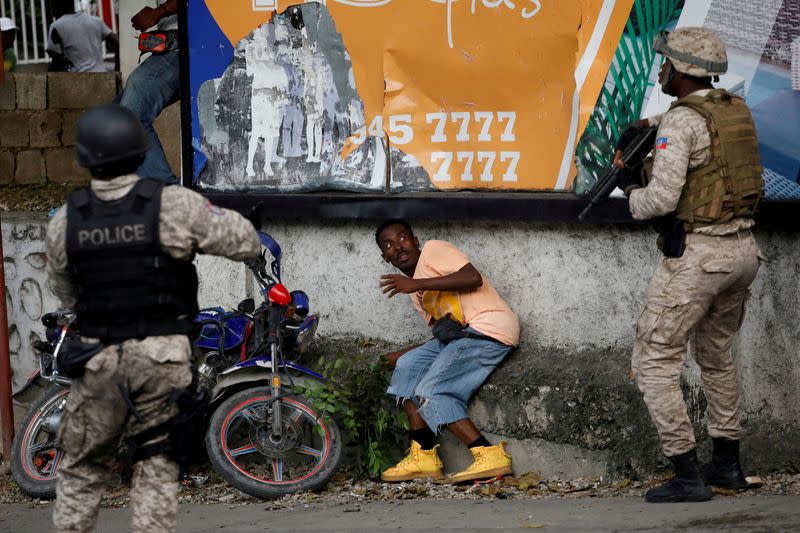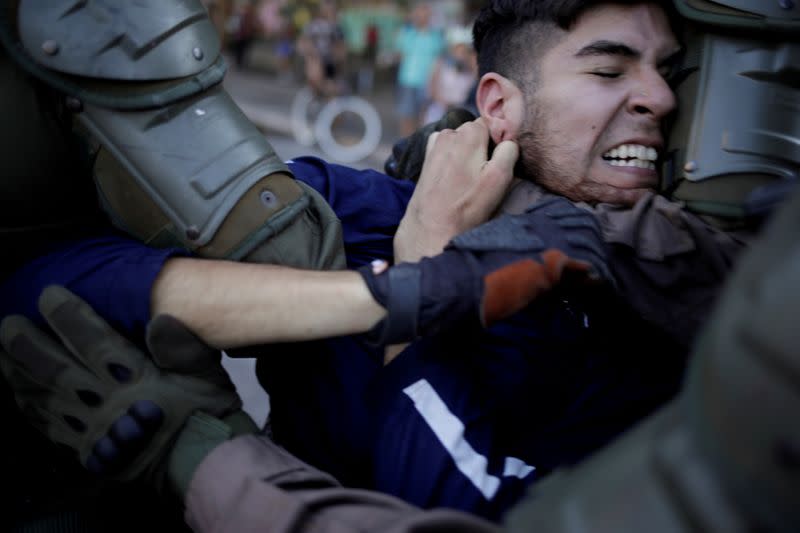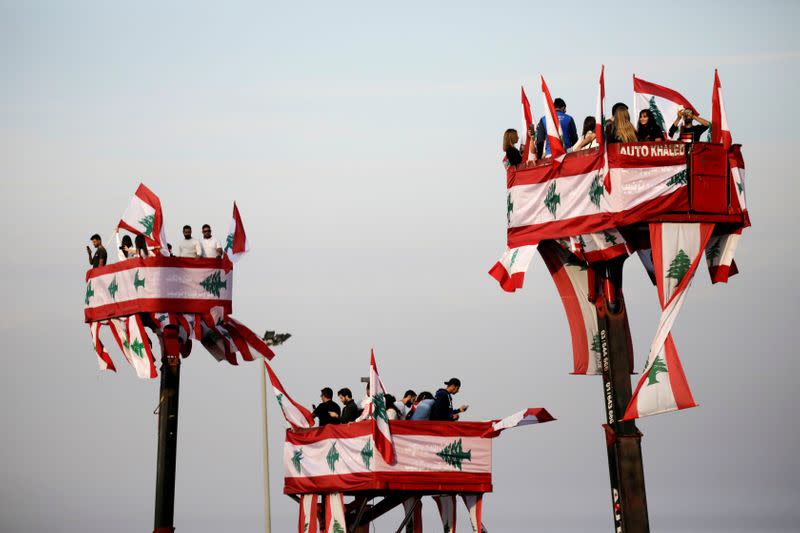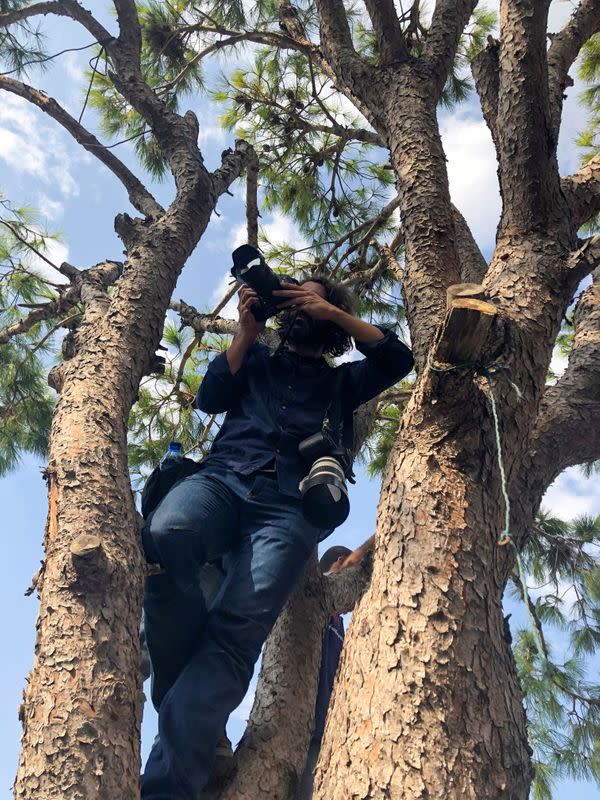Crossing continents to cover protests
BEIRUT (Reuters) - One moment, photographer Andres Martinez Casares was out on the streets of Port-au-Prince, Haiti, dodging teargas canisters as crowds called for the resignation of President Jovenel Moise and his government.
The next, he was in Beirut which was packed with protesters chanting for the political elite to be ousted.
Journalists have to live with sharp transitions as they move from story to story. Martinez Casares had to travel 10,500 km (6,500 miles), in just over a day, from the unrest in the heart of the Caribbean to mass protests in the Middle East.
The photographer - who had been working in Haiti since 2010 - had been asked to fly from Port-au-Prince to Guadeloupe to Paris and then Beirut to join the local team who had been covering the Lebanese demonstrations for weeks.
Reuters has a string of international bureaus well placed to report on developments on their patch, but on particularly long-running stories, they welcome reinforcements.
"Part of the job is to be a quick responder," said the 37-year-old from Leon, Spain.
"On my first day in a new place, I always like to be with somebody who is familiar with the situation and can help me to understand it on the ground."
Picture editors Cynthia Karam and Maria Semerdjian brought him up to speed on the latest developments in Beirut and showed him the main locations.
RULES OF ENGAGEMENT
From then on it was a question of following an adaptable set of rules of engagement - wearing the right protective gear, checking for exit routes, watching the behaviour of security forces and protesters.
"I've always tried to work with somebody that I can trust, a motorcycle taxi driver in Haiti, for example, or other colleagues - keeping an eye on them and vice versa in case there is a problem so we can assist each other.
"And when I’m taking pictures, it's about being respectful, responsible and accurate, not exaggerating or minimizing, and being honest and fair."
It's also about telling the story of individuals caught up in political unrest.
The last pictures he took in Haiti showed members of the national cycle team training in the backstreets as the protests raged around them.
Among the first he took in Lebanon showed life in the street camps that sprang up during the demonstrations - women chatting on the roof of an abandoned cinema, tents in a downtown square.
Three weeks on, those protests had died down in Beirut.
But just over 13,500 km southwest on another continent, thousands more people were heading out on the streets, many of them calling for the resignation of their own president. Martinez Casares got on another plane, heading for Santiago, Chile.
(Editing by Andrew Heavens)




